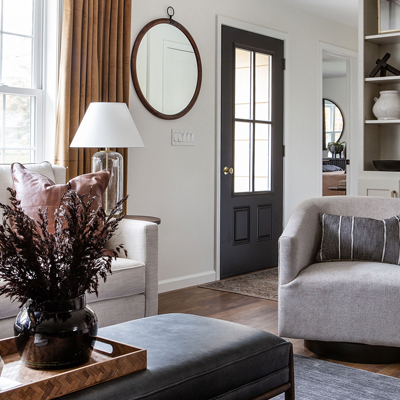 It’s no secret that the 2022 real estate market was a volatile one. Today we’re discussing the current real estate market to decide if home ownership in 2023 is a viable option for you.
It’s no secret that the 2022 real estate market was a volatile one. Today we’re discussing the current real estate market to decide if home ownership in 2023 is a viable option for you.
- Goldman Sachs’ G-10 home price model suggests home prices will decline by around 5% to 10%from the peak.
- Freddie Mac anticipates the for-sale cost of a home to drop .2% in 2023.
- These stats are from this article on Houwzer.
While it is not predicted that housing costs will drop significantly in 2023, it is widely predicted that prices and loan rates will remain more stable, rising slowly instead of the craziness that was 2022. However, in order to get that stabilization of the market, interest rates remain higher than average. What that means for consumers is less home for more payment.
All hope is not lost. Home ownership is still an option for a lot of people with steady incomes and good credit. It’s important that you start behaving like you are applying for a home loan, even before you start looking for the house.
- Keep paying the rent on time.
- Make credit card payments on time.
- Make auto loan payments on time.
- Do not make any new big purchases.
- Do not apply for new credit; which includes not financing things like furniture or big trips.
- Do not buy a new car just because you are tired of the old one.
“How do I buy a home in this market? Everything I want is so expensive and home ownership seems impossible.”
 This is the hard part. We believe, if you are committed to being a home owner, you must enter the market as soon as you can, even if the house you can afford does not check ALL of your boxes. To explain, you might have to get a starter home that appropriately reflects your budget, not your dreams. While you may *want* 5 bedrooms, but only *need* 2; find a desirable property that gets you into a home and matches your budget. In other words, new home hunters will likely have to settle for a bit less than they desire.
This is the hard part. We believe, if you are committed to being a home owner, you must enter the market as soon as you can, even if the house you can afford does not check ALL of your boxes. To explain, you might have to get a starter home that appropriately reflects your budget, not your dreams. While you may *want* 5 bedrooms, but only *need* 2; find a desirable property that gets you into a home and matches your budget. In other words, new home hunters will likely have to settle for a bit less than they desire.
“If I buy within my budget, what should I be looking for?”
You should still look for *smaller* versions of your ideal home. Find the “worst” house in the best neighborhood.
 “What do you mean by ‘Worst home in the Best Neighborhood?'”
“What do you mean by ‘Worst home in the Best Neighborhood?'”
Think mild to moderate fixer upper. Look for a solid home with “good bones,” but may need help with cosmetic things like paint, landscaping, updating cabinetry or faucets, etc. Ask your realtor if there is any inspection information available for the homes you are interested in. If you find a home, be sure to get an inspection on the property before you buy the home. Find a home that needs a little love, but not one that will become a money pit. Home Inspectors can help you identify the potential of expensive problems like:
- Outdated electrical
- Structural issues
- Plumbing problems (especially ones that seem to be reoccurring)
- Water well trouble
- Sink hole warnings
- Septic tank issues
“Why should I buy a home that is not my dream home?”
When you are a home owner, you leverage your current home to get you into your next home. It becomes easier to buy the next level of home when your current home increases in value.
“If I am already a home owner but am struggling with inflation and making mortgage payments, what is your advice?”
 Make. Your. Mortgage. Payments. Defaulting on your mortgage impacts your credit score significantly. You need good credit to get credit. Equally important payments to attend to are:
Make. Your. Mortgage. Payments. Defaulting on your mortgage impacts your credit score significantly. You need good credit to get credit. Equally important payments to attend to are:
- Credit Cards
- Auto Loans
If you are struggling, do not put items you cannot afford on credit. Credit cards should only be used to buy you a little time and build your credit, not to “worry about later” or purchase things you cannot afford.
We have created a list of income leeching culprits to investigate to help you FIND MONEY QUICKLY without creating a “budget.” Check out the article here.
What is the downside to owning a home?
 The downside is, you pay for everything. There is no more landlord to “fix” things for free, so you want to keep in mind that there will be hidden costs of home ownership. Typical expenses that arise (usually over several years) of owning a home are;
The downside is, you pay for everything. There is no more landlord to “fix” things for free, so you want to keep in mind that there will be hidden costs of home ownership. Typical expenses that arise (usually over several years) of owning a home are;
- Lawn Care
- Pest Control
- Tools
- Broken Appliances
- Broken Water Heaters
- Failing Air Conditioners
- Plumbing Issues
- Roofing and Leaks
What is the upside of owning a home, rather than renting?
 YOUR Investment: The upside of home ownership is the money you used to pay to some else as rent, becomes an investment in something YOU OWN and can leverage for future housing.
YOUR Investment: The upside of home ownership is the money you used to pay to some else as rent, becomes an investment in something YOU OWN and can leverage for future housing.
Predictable Payments: Home ownership with a fixed rate also locks you into a predictable payment, instead of getting the rent raised on you again and again.
No more moving to save money: In a similar vein, when you own a home, you don’t have to move again every 6 months to a year just to get a better rental rate from another landlord.
Refinancing for even lower payments/loan rates: A few years in to owning the home, should interest rates drop, you can refinance your mortgage loan to potentially receive an even lower predictable payment. (That’s where you call us again! 😃)
 How can I help my children buy a home in the future?
How can I help my children buy a home in the future?
If you can afford to finance a second property, that is the best way you can secure a home for your children in the future. This is a means to lock in today’s purchase prices, instead of the potentially higher home pricing that will exist 10 to 20 years from now. The idea is; investing in a second property now and using that home as a way to generate extra income through renters. In the future the property would be turned over to their grown children; to live in, leverage for another home, or manage the rental for income.
